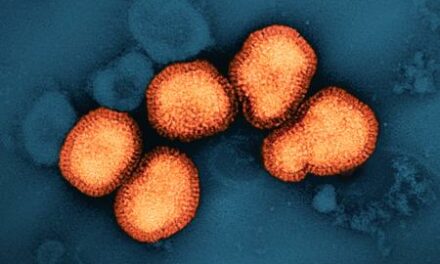A Johns Hopkins study found that strains of a subtype of H3N2 have a mutation that blocks antibodies from binding to a key viral protein.
The results have implications for flu vaccine design, according to the researchers. Current flu vaccines, which are “seasonal vaccines” designed to protect against recently circulating flu strains, induce antibody responses mostly against a different viral protein called hemagglutinin.
The new mutation, described in the study published online June 29 in PLOS Pathogens, was first detected in the 2014-2015 flu season in some H3N2 flu strains, and evidently is so good at boosting flu’s ability to spread that it is now present in virtually all circulating H3N2 strains. Recent flu seasons, in which H3N2 strains have featured prominently, have been relatively severe compared to historical averages.
The mutation alters a viral protein called neuraminidase, and the researchers found in their study that this alteration paradoxically reduces the ability of flu virus to replicate in a type of human nasal cell that it normally infects. However, the researchers also found evidence that the mutation more than compensates for this deficit by setting up a physical barrier that hinders antibodies from binding to neuraminidase.










